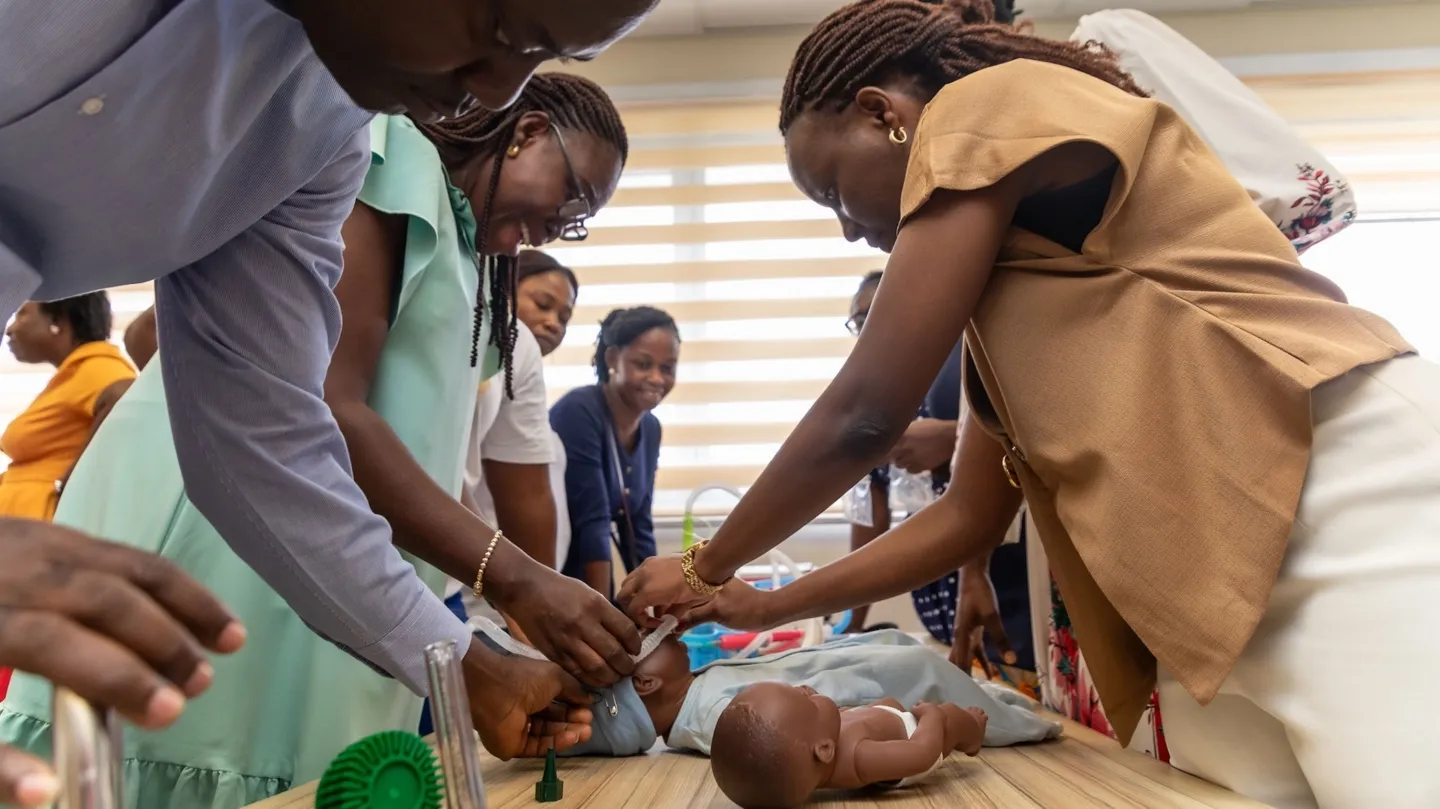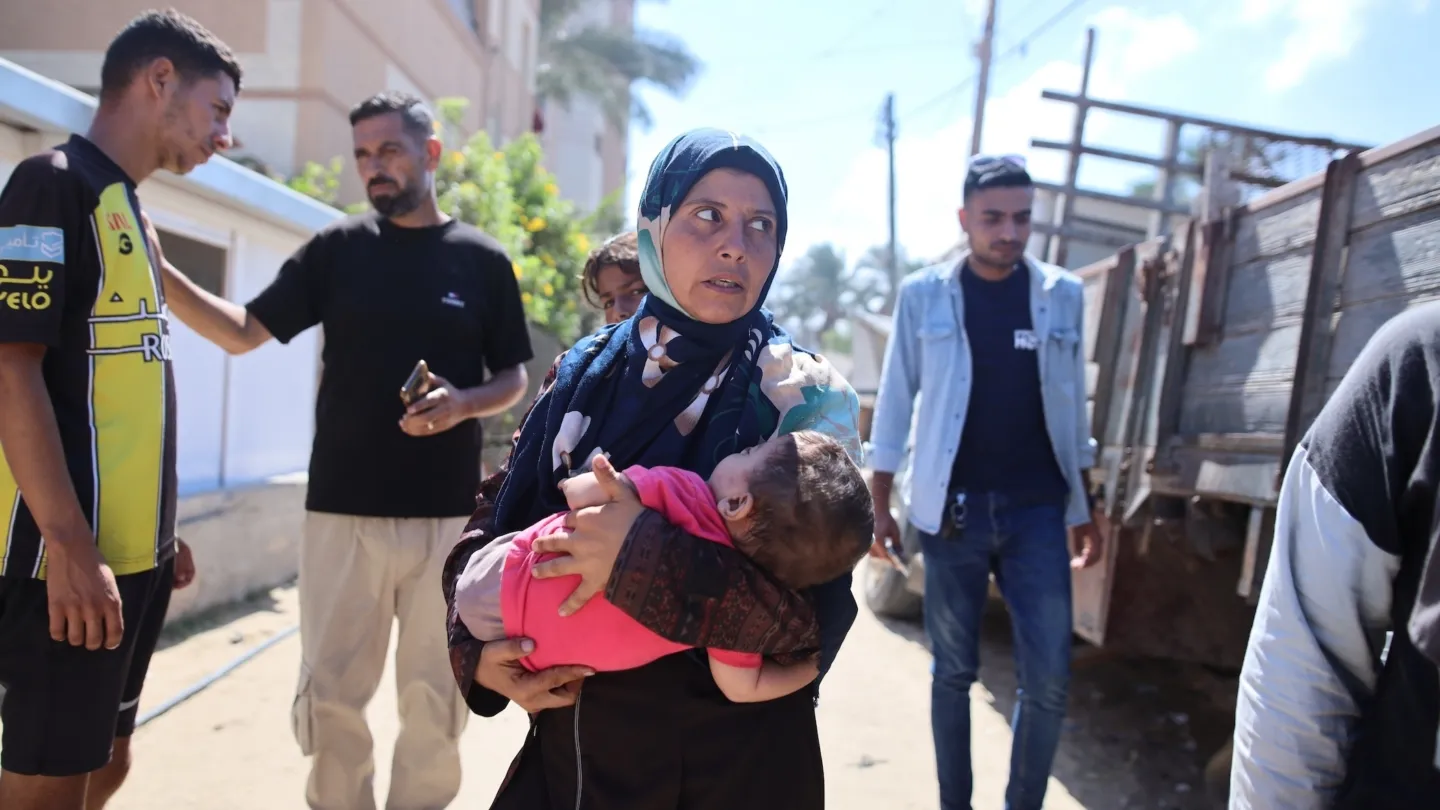Gaza: Pregnant Women and Children Going Hungry

Hunger threatens the lives of women and children across Gaza as widespread evacuations displace communities who have gone months without aid. New data from Project HOPE’s health clinics reveal that in some locations, up to 42% of pregnant and lactating patients were diagnosed as malnourished over the last two weeks. Due to new evacuation orders, Project HOPE has been forced to close clinics, evacuate staff, and relocate supplies, further straining access to critical care.
Project HOPE has been operating six primary health clinics in Deir al Balah and Khan Younis, which have been overwhelmed by the volume of patients seeking care. As other health facilities shut down due to supply shortages and funding gaps, each is treating an average of 300 patients daily—many arriving with advanced signs of malnutrition and dehydration.
Across our six clinics in Gaza, an average of 27% of pregnant and lactating women who sought care during this period were diagnosed as malnourished with some clinics reporting even higher rates, with up to 42% of pregnant women and 34% of lactating women suffering from malnutrition. Malnutrition among pregnant and lactating women increases the risk of complications such as premature birth, low birth weight, and maternal mortality. Infants born to malnourished mothers face immediate health challenges and are more likely to suffer from long-term developmental delays.
Children are also increasingly affected. Our teams on the ground report that more and more families are relying on our clinics for nutritional supplements and that children visiting Project HOPE clinics have gone for weeks only consuming High Energy Biscuits (HEBs) and Ready-to-Use Therapeutic Food (RUTF) – items given to malnourished patients for short-term survival needs, rather than sustained nourishment.
Ghadeer, a nurse with Project HOPE in Gaza, said: “The number of malnutrition cases has skyrocketed. Two months ago, malnutrition cases did not exceed 50 cases per day. Now, we’re seeing about 200 cases per day. Many of the children we see haven’t eaten real food in weeks—only the nutritional biscuits we distribute. They’re losing weight, becoming withdrawn, and getting sick more easily. We’re doing everything we can, but we’re seeing the consequences of extreme hunger in an entire generation. Without more food and aid coming in, I fear for their future.”
As the blockade largely persists, Gaza’s most vulnerable—pregnant women, new mothers, and young children—are being pushed deeper into crisis. Growing food insecurity is increasing tensions within the community, placing already vulnerable groups at even greater risk. Without sustained humanitarian access and the safe delivery of food, water, and medical supplies, the consequences for this generation will be catastrophic and lasting. Project HOPE calls for an immediate ceasefire, unimpeded humanitarian access, and a dramatic scale-up of aid to meet the urgent needs of Gaza’s civilian population.
In Gaza, Project HOPE operates primary and maternal health clinics, providing mental health and psychosocial support (MHPSS) services, delivering medicines and medical supplies, and providing water, sanitation, and hygiene (WASH) support. While the aid blockade has continued and is extremely detrimental to the communities we serve, we are fortunate to have a large team of national staff in Gaza and adequate supplies to continue to operate health clinics, distribute clean drinking water, and provide mental health and gender-based violence support.
Project HOPE has spokespeople available for interviews. For media inquiries, email media@projecthope.org.
Related Articles

What is a Mobile Medical Unit?
02.10.2026

The Tiny Machine That Helps a Baby Breathe
02.03.2026

Humanitarian Crisis in Gaza: How To Help
02.02.2026
